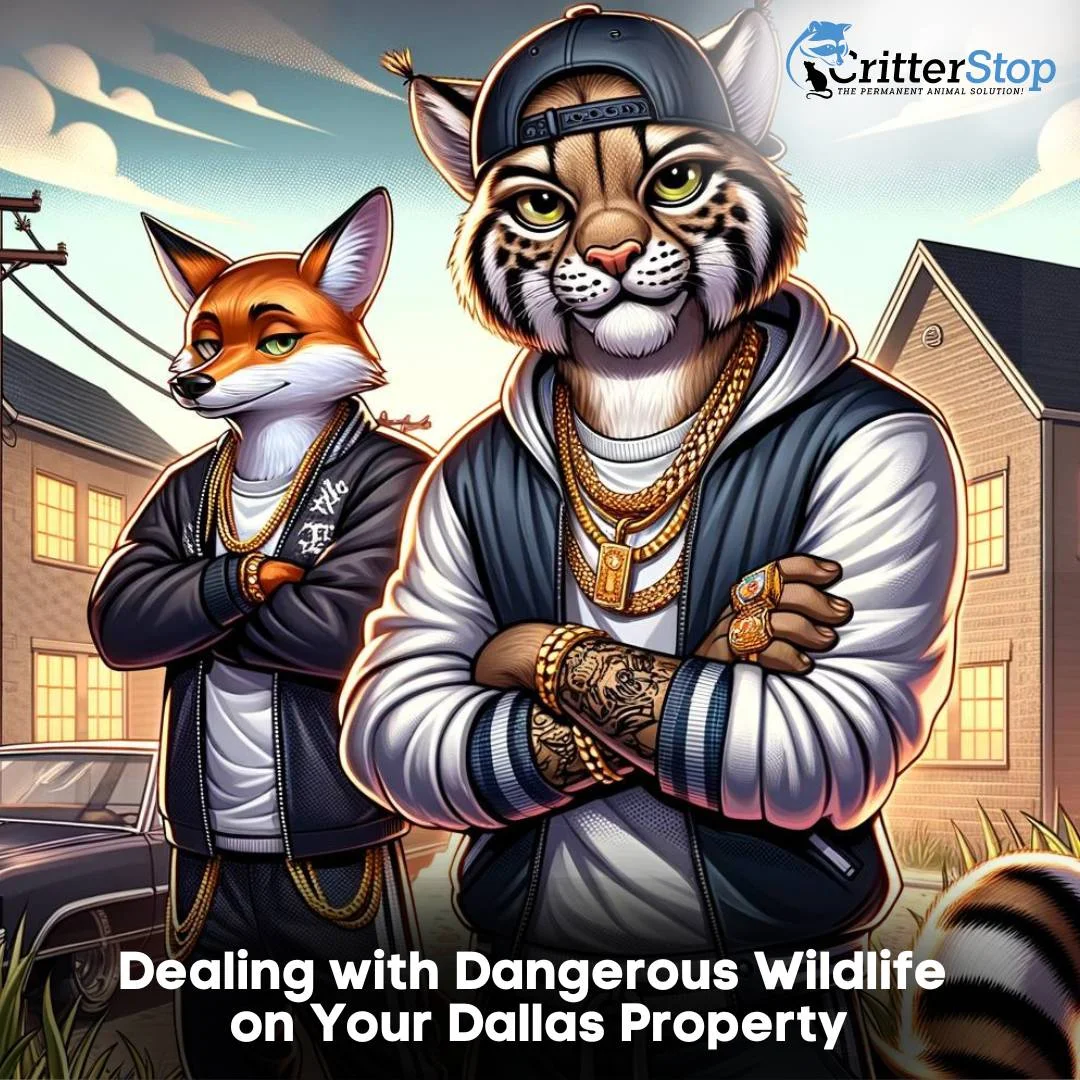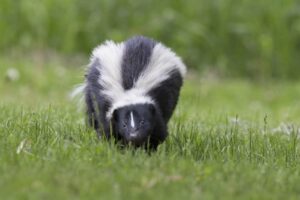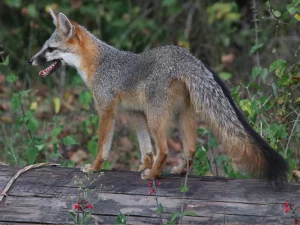
Do you live in Dallas and find yourself dealing with dangerous wildlife on your property? If so, you're not alone. Many homeowners in the area face similar challenges, but with the right knowledge and strategies, you can effectively manage and prevent wildlife encounters. In this comprehensive guide, we'll explore various aspects of dealing with wildlife, including understanding local species, creating a wildlife-friendly environment, and swift solutions for dealing with infestations. So let's dive in and get started on making your Dallas property wildlife-free.
Before you can effectively deal with wildlife on your property, it's important to get to know the local species that you may encounter. Dallas is home to a variety of native wildlife, including foxes, raccoons, skunks, and even the occasional bobcat. Understanding the behavior, habits, and habitats of these animals will help you better manage and prevent encounters.
Dallas, Texas, with its diverse ecosystems and urban sprawl, provides a unique opportunity for residents to coexist with a wide range of wildlife species. From the bustling city streets to the tranquil parks and green spaces, the local wildlife has adapted to thrive in this dynamic environment.
One of the most common native species you may encounter in Dallas is the fox. These cunning creatures are known for their intelligence and adaptability. They have a keen sense of smell and are skilled hunters, often preying on small mammals and birds. Foxes are primarily nocturnal, so it's not uncommon to spot them darting across your property under the cover of darkness.
Raccoons, on the other hand, are notorious for their mischievous nature. These agile creatures are highly adaptable and can be found in both urban and rural areas. Raccoons are omnivorous, feasting on anything from fruits and vegetables to small animals and garbage. Their dexterous paws and curious nature often lead them to explore human habitats, causing occasional disturbances.
Skunks, with their distinctive black and white fur, are another common sight in Dallas. These nocturnal creatures are known for their potent defensive spray, which they use as a deterrent against predators. Skunks are opportunistic feeders, consuming a variety of foods, including insects, small mammals, and even fruits and vegetables. While they may be unwelcome guests on your property, they play an important role in controlling insect populations.

Occasionally, residents of Dallas may even come across the elusive bobcat. These solitary and elusive felines are skilled hunters, capable of taking down prey larger than themselves. Bobcats are territorial animals, with each individual occupying a large home range. Their presence in the area is a testament to the diverse and thriving ecosystem that Dallas has to offer.
Exploring the native species in your area is the first step in understanding the wildlife that may pose a danger to your Dallas property. Research online or consult with local wildlife experts to learn more about the specific animals you may encounter. This knowledge will help you identify and respond appropriately to any wildlife sightings.
For instance, understanding the natural history of foxes can provide insights into their behavior and potential interactions with humans. Learning about their preferred habitats, such as wooded areas or open fields, can help you identify areas on your property that may attract these creatures. By implementing measures to deter foxes, such as securing trash cans and removing potential food sources, you can minimize the chances of unwanted encounters.
Raccoons, with their adaptability and intelligence, require a different approach. By understanding their resourcefulness and ability to access human structures, you can take steps to secure your property. This may involve sealing off potential entry points, such as gaps in the attic or under the porch, to prevent raccoons from establishing dens on your premises.
Skunks, while generally harmless unless threatened, can become a nuisance if they decide to take up residence under your deck or shed. By familiarizing yourself with their habits and preferences, such as their affinity for dark and secluded areas, you can take proactive measures to deter them from choosing your property as their new home.
Understanding the behavior and habitat requirements of bobcats is crucial for ensuring their conservation and minimizing potential conflicts. By preserving natural areas and providing suitable habitats, residents can contribute to the long-term survival of these magnificent creatures.

While the presence of wildlife on your property may be concerning, it's important to remember that these animals play a vital role in the ecosystem. They help control populations of pests and maintain ecological balance. By understanding their role, you can adopt a more balanced approach to wildlife management.
For example, foxes play a crucial role in controlling rodent populations, which can become a nuisance in urban areas. By preying on mice and rats, foxes help keep these populations in check, reducing the need for chemical pest control methods. Similarly, raccoons contribute to ecosystem balance by consuming insects, small mammals, and even carrion, preventing the spread of disease and maintaining a healthy environment.
Skunks, despite their pungent reputation, are valuable allies in the fight against garden pests. They feed on insects, such as beetles and grasshoppers, that can damage crops and ornamental plants. By allowing skunks to forage in your yard, you can reduce the need for harmful pesticides and promote a more sustainable approach to gardening.
Bobcats, as top predators, help regulate populations of smaller mammals, ensuring a healthy balance within the ecosystem. By controlling the numbers of rabbits, squirrels, and other prey species, bobcats prevent overgrazing and maintain the integrity of natural habitats.
By recognizing the importance of wildlife in the ecosystem, you can develop a greater appreciation for the diverse species that call Dallas home. Through responsible wildlife management practices, you can coexist with these animals while minimizing potential conflicts and preserving the natural beauty of your surroundings.
Preventing wildlife encounters is crucial for ensuring the safety of your family and pets. Here are some effective methods for creating a wildlife-free environment on your Dallas property.
Living in harmony with nature is a wonderful experience, but sometimes wildlife can become a nuisance. From raccoons rummaging through your trash to squirrels making a cozy home in your attic, it's important to take proactive measures to prevent these encounters. By implementing the following tips, you can create a wildlife-friendly environment that promotes coexistence while keeping your property safe.
Creating a wildlife-friendly environment involves making your property less attractive to animals in search of food and shelter. Start by securing trash cans with tight-fitting lids and removing any potential food sources, such as fallen fruits or unsealed pet food. These seemingly innocent items can be a magnet for wildlife, inviting them into your space.
Furthermore, it's essential to maintain a well-groomed yard. Regularly trim tree branches that hang close to your house, as they can serve as bridges for animals to access your roof. By keeping the branches at a safe distance, you minimize the chances of unwelcome guests finding their way into your home.
Sealing potential entry points is another important step in wildlife prevention. Animals are experts at finding small openings that lead into your house. Inspect your property for any gaps or cracks in the foundation, walls, or windows. Seal these openings with appropriate materials to prevent animals from sneaking in.
While it's impossible to eliminate all wildlife from your surroundings, these measures significantly reduce the likelihood of encounters. By creating a less enticing environment, you encourage animals to seek their natural habitats instead of invading your space.
If you encounter wildlife on your property, it's important to deter them in a humane manner. Loud noises, bright lights, and strong odors can help discourage animals from approaching. For instance, setting up motion-activated devices that emit loud sounds or flashing lights can startle animals and make them think twice about venturing further into your property.
Another effective method is to use strong odors that animals find unpleasant. Citrus peels or ammonia-soaked rags strategically placed around your property can create a scent barrier that animals will want to avoid. However, it's important to remember that these methods should be used in a way that does not harm the animals. They are simply meant to deter them from getting too close to your home.
It's crucial to avoid harmful or lethal methods when dealing with wildlife. Not only are these methods often ineffective, but they can also cause unnecessary suffering. Instead, focus on creating an environment that is unappealing to animals, encouraging them to seek alternative habitats without causing harm.
By implementing these humane deterrents, you can peacefully coexist with wildlife while maintaining the safety and integrity of your property.

Despite your best efforts, you may find yourself facing a wildlife infestation on your Dallas property. In such cases, it's important to act swiftly and take appropriate steps to ensure the safety of your home and loved ones.
If you suspect a wildlife invasion, the first step is to assess the situation from a safe distance. Do not attempt to handle the situation yourself, as wild animals can be unpredictable and dangerous. Instead, contact a professional wildlife control service that specializes in safe and humane removal.
When it comes to dealing with a wildlife infestation, it's best to leave it to the experts. Professional wildlife control services have the experience, knowledge, and tools to safely remove animals from your property. They will also assess and address any potential entry points to prevent future infestations.
To ensure a wildlife-free home, it's essential to schedule a professional inspection of your Dallas property. Here's why a professional inspection is crucial:
A professional inspection will provide a comprehensive assessment of your property, including potential risks and vulnerabilities for wildlife infestations. By identifying these areas, you can take proactive measures to prevent future encounters.
Scheduling a complimentary wildlife inspection is the first step towards reclaiming your Dallas property. By partnering with professionals in wildlife management, you can ensure the safety and peace of mind that comes with a wildlife-free home.
By following the guidelines outlined in this comprehensive guide, you can effectively deal with dangerous wildlife on your Dallas property. Remember, knowledge is key, and taking proactive steps towards prevention and swift action in case of infestations will help you maintain a wildlife-free environment. So embrace your role as a responsible homeowner, and enjoy the peace and safety of a wildlife-free home.